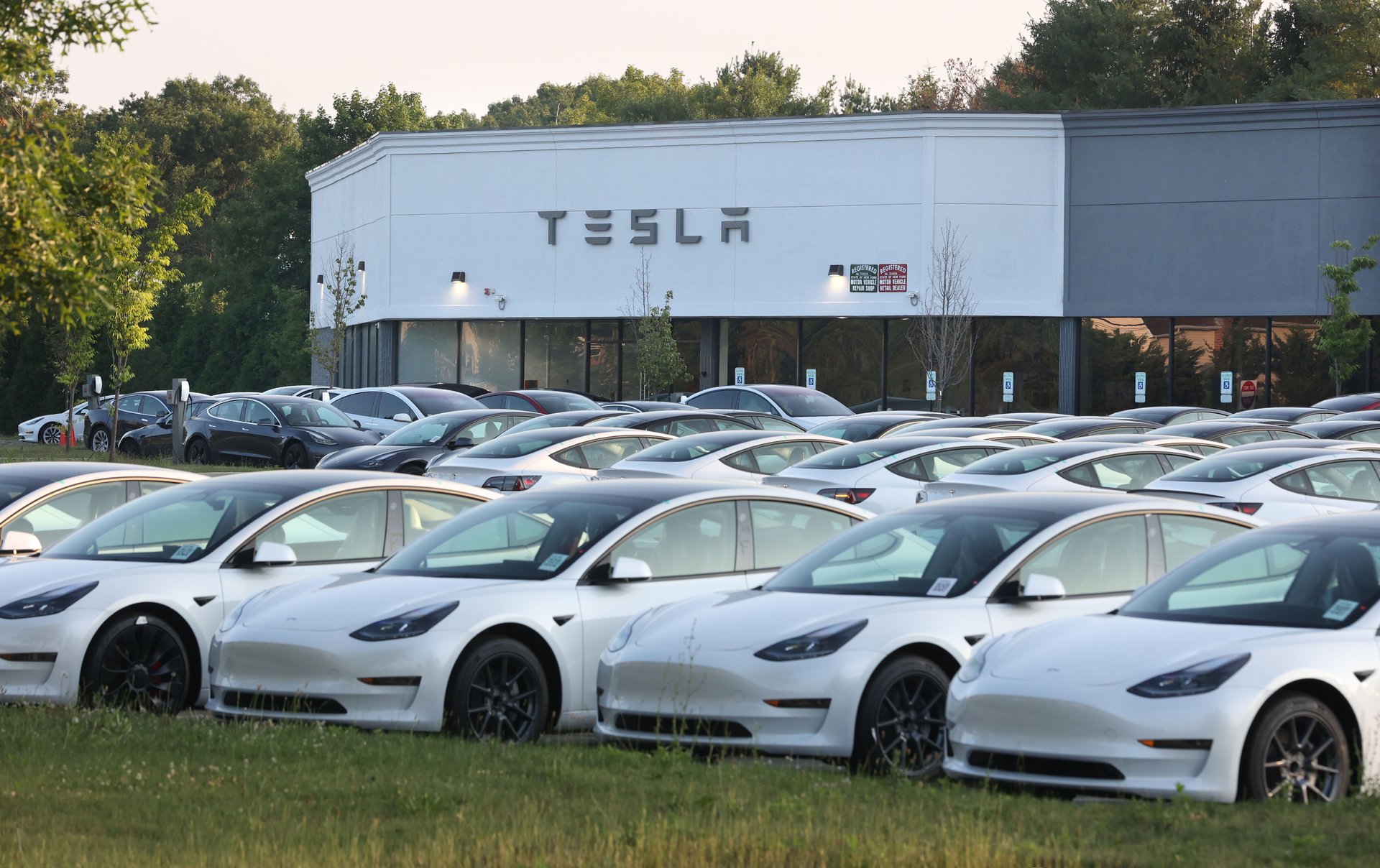Tesla sales keep going the wrong direction in Europe
New data shows that Tesla’s vehicle registrations in Europe are down almost 28% year-over-year, while the broader EV market across the E.U. is surging

John Paraskevas/Newsday RM via Getty Images
It wasn’t long ago that Tesla was the best-selling car brand in Europe. Now, it’s struggling to keep up with the traffic.
Suggested Reading
New data from the European Automobile Manufacturers Association shows that Tesla’s vehicle registrations in Europe fell for the fifth consecutive month in May, down nearly 28% year-over-year — even as the broader EV market across the E.U. surged more than 27%. In Germany, Tesla’s largest European market, registrations fell nearly 36%. In the U.K., they dropped 45%. In France, they collapsed by more than 67%.
Related Content
The decline marks a sharp reversal for a company that once defined the electric car category on the continent. And the downturn isn’t happening in a vacuum: Tesla’s rivals are accelerating — fast.
Chinese automakers, in particular, are taking the inside lane. BYD and SAIC (maker of the MG brand) have steadily gained market share in Europe, helped by lower prices and expanding dealer networks. Chinese brands accounted for nearly 6% of EVs sold in Europe in May, selling roughly 66,000 vehicles — up from just 3.8% a year earlier. In Germany, SAIC’s MG brand outsold Tesla by more than two to one.
Tesla’s slide comes despite the fact that European EV demand is still growing. Industry-wide sales of battery-electric vehicles are up sharply across much of the region, driven by regulatory tailwinds, improved charging infrastructure, and expanding model choices. That growth is lifting many boats — but not Tesla’s.
One reason: The Model Y, Tesla’s most popular vehicle in Europe, has been caught in a refresh limbo. Tesla began rolling out a revised Model Y with improved interior features and a sleeker design earlier this year — but not in every country. In Norway, where the refreshed Model Y was available, sales jumped 213% in May. In markets such as Germany, France, and the U.K., where the updated version wasn’t widely available, Tesla dealers were left selling through older inventory, often at a disadvantage to competitors offering newer and cheaper alternatives.
Price cuts and sporadic discounts haven’t done enough to stem the slide, and the company’s reliance on a lean lineup — just four models, with no new mass-market vehicles on the immediate horizon — has left Tesla exposed as the European EV market fragments and diversifies.
There’s also Tesla’s perception problem.
The company, long considered the aspirational choice for tech-forward drivers, now faces pressure from rivals offering similar range and features at lower prices. Meanwhile, CEO Elon Musk’s increasingly polarizing public image and flirtations with right-wing politics have sparked concerns among some European consumers and policymakers.
French inquiries into deceptive autonomous driving claims and market hesitation add to the negative backdrop. This week, France’s Economy Minister Bruno Le Maire said — in a move that could help Tesla — that the country would no longer subsidize EVs made in China, which just further underscores the volatile geopolitical waters all automakers are navigating.
The decline in European sales arrives at a delicate moment for Tesla. It’s not a crisis yet, but it’s a clear signal.
The broader concern for Tesla isn’t just about one month of declining sales — or even five. It’s about momentum. And right now, in Europe at least, Tesla is losing it. The company still dominates EV sales in the U.S., and its longer-term bets — on full self-driving software, robotaxis, humanoid robots, and energy infrastructure — may yet pay off. But in Europe, its second-largest market, the brand faces stiffening headwinds: intensifying competition, shifting consumer sentiment, and a wary political climate.
As Europe’s EV market matures, Tesla’s early-mover advantage is no longer enough. To stay competitive, the company will need more than just refreshed models — it may need a refreshed approach as its rivals charge ahead.
